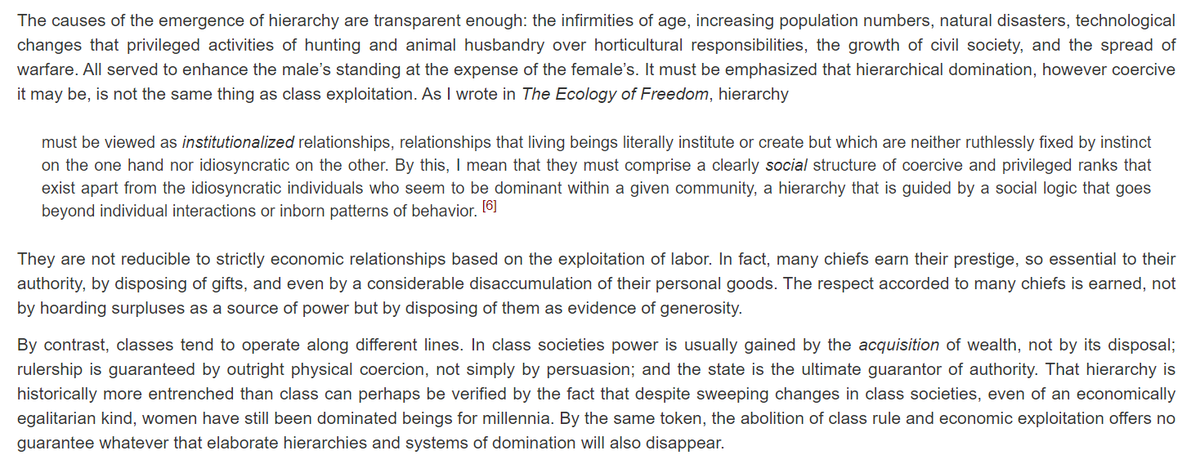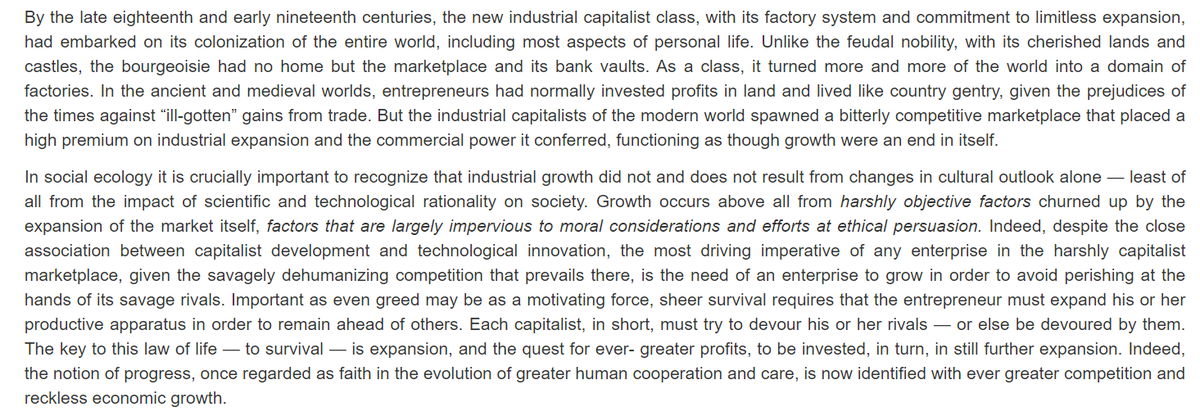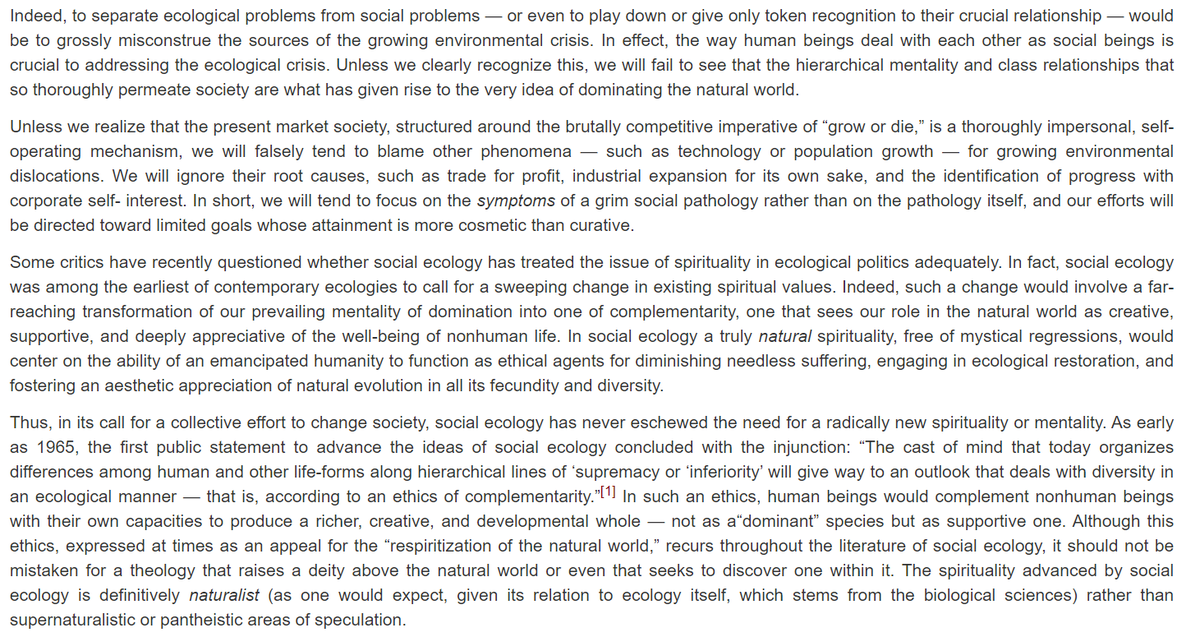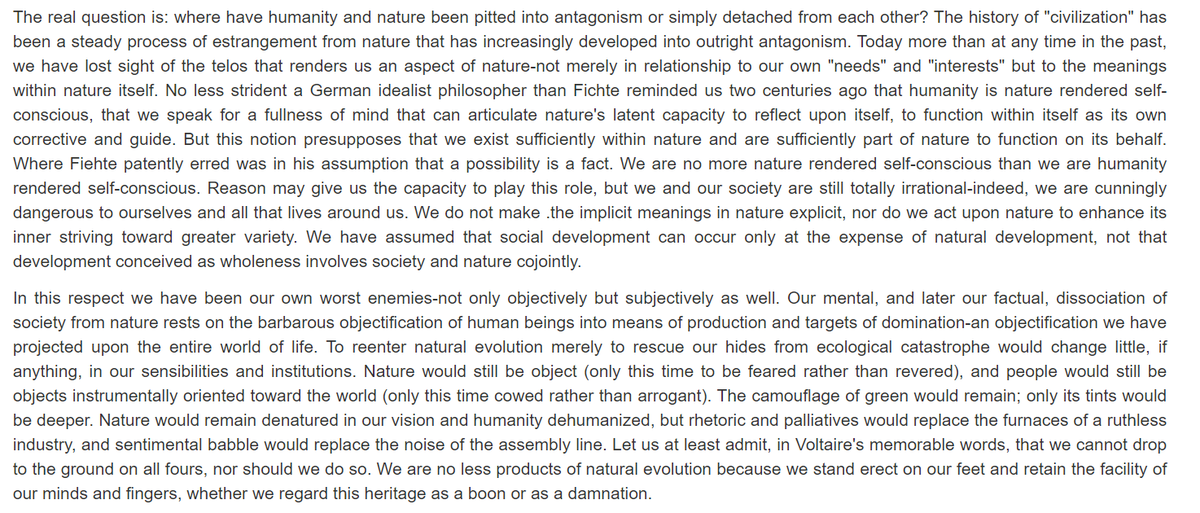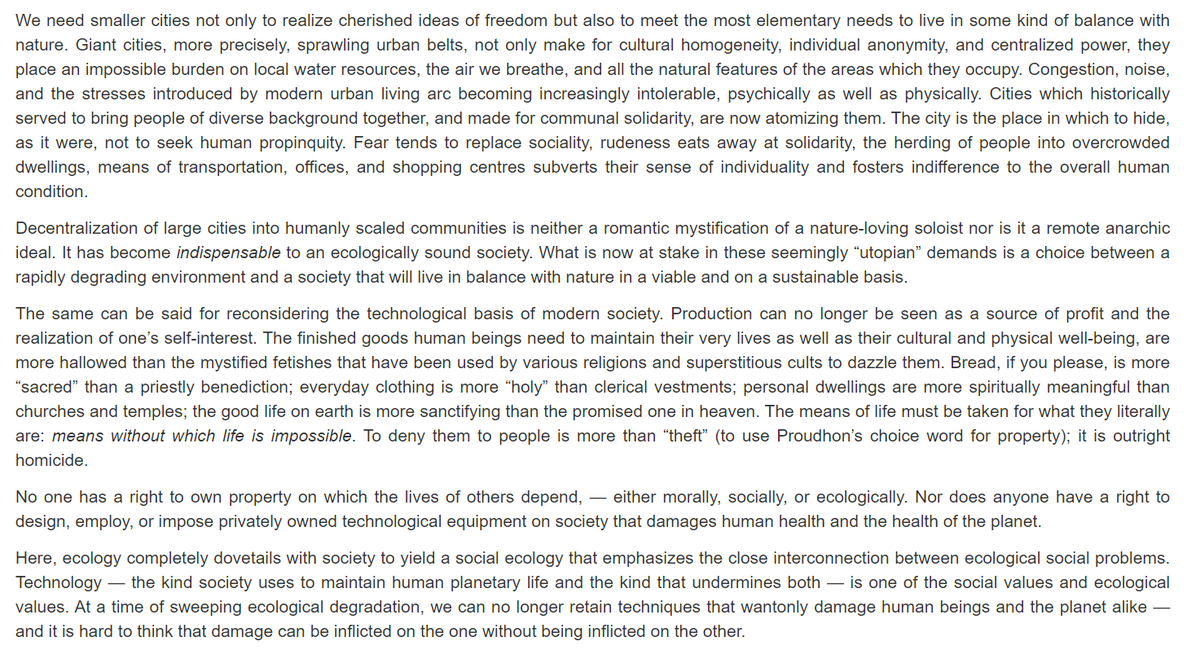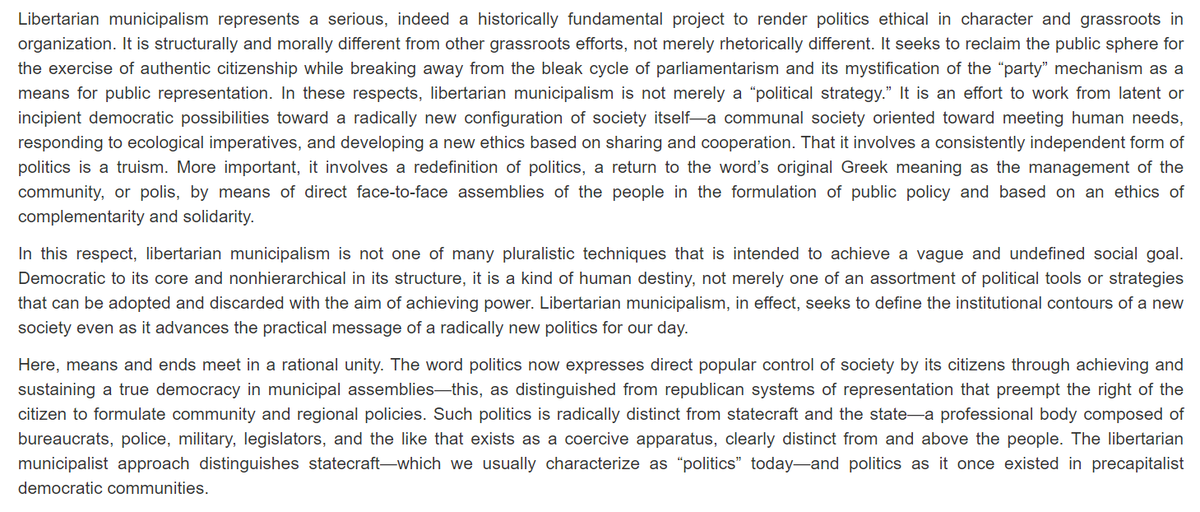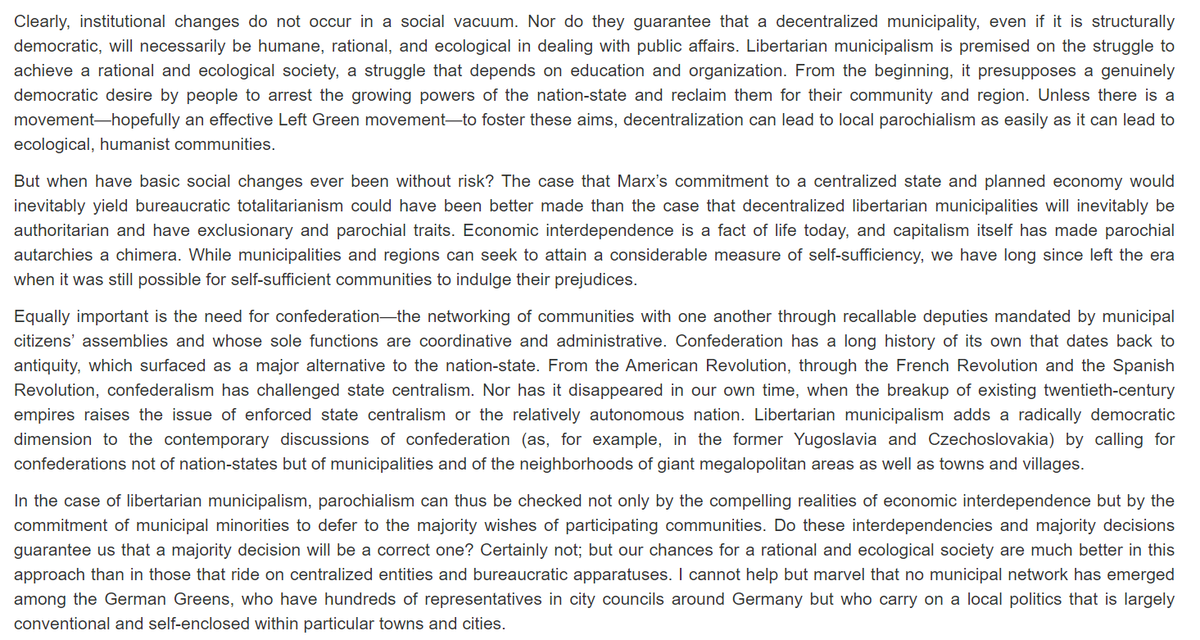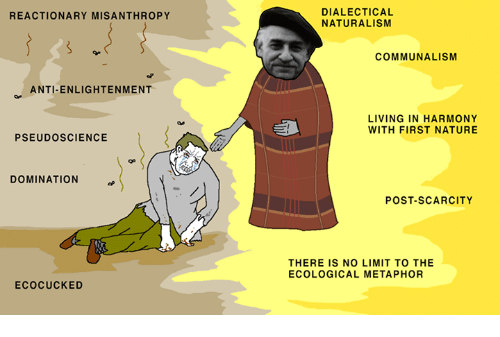LET'S FUCKING GOOO! Discourse I can actually contribute to. There are a few things worth pointing out here
First, it's important to know that Bookchin explicitly distinguished domination which is based on hierarchy from class relationships https://twitter.com/fatal_strategys/status/1343269465115549698
First, it's important to know that Bookchin explicitly distinguished domination which is based on hierarchy from class relationships https://twitter.com/fatal_strategys/status/1343269465115549698
While class based relationships are a subcategory of hierarchy, domination goes well beyond relationships of class. Class is a distinctly exploitative set of realtions, which is not always the reason for domination
With this in mind, there are two core ideas social ecology has on the relationship between society and nature. First, on the subjective level, social ecology argues that the idea of humanity dominating nature emerged from the real domination of human by human
Second, on the material level, social ecology argues that the majority of our ecological problems stem from the built in imperatives of hierarchical and class based societies.
Fuck, I gotta go, but I'll be continuing this thread in a moment lol
Alright, now where was I
An important fact to consider is that Bookchin specifically says almost all, not quite all, ecological problems are caused by social problems. This is apparent throughout his work on the relationship between society and nature.
This shared emphasis between the subjective and material components of the ecological crisis is core to Bookchin's analysis. To Bookchin, a need to develop new institutions that would eliminate hierarchy was as crucial as developing new outlooks on nature
On a subjective level, Bookchin developed a philosophy called dialectical naturalism, which he saw as a basis for a new ethics based on the objective tendencies in nature toward increasing subjectivity, and humanity's latent potentials to create a free, conscious nature.
It's worth noting that Bookchin conceptualized morality and ethics as being fundamentally different from one another
The material components of social ecology emerge primarily from Bookchin's critique of urbanization, a destructive technics, and the ecological consequences of capital accumulation
To counter these, social ecology seeks to develop a new ecological politics based on reclaiming the city's democratic history, developing and employing liberatory and ecological technology, and developing a municipalized and democratic economy based on economic interdependence.
Notions of the irreducible minimum also pop out in Bookchin's writings
All these observations allow us to develop a clear understanding of the relationship between our current ecological crises and society:
1. Hierarchical relationships between humans led to hierarchical attitudes toward nature
2. Hierarchical relationships also have developed into specific institutional forms that create the material basis for ecological destruction
Thus ecological crises emerges from social crises
2. Hierarchical relationships also have developed into specific institutional forms that create the material basis for ecological destruction
Thus ecological crises emerges from social crises
and furthermore, only by changing both our outlook toward nature & the social relationships among humans can we expect to overcome our ecological problems.
sources: "The Ecology of Freedom", "Remaking society", "Social Ecology & Communalism", "the Next Revolution", "The Philosophy of Social Ecology"

 Read on Twitter
Read on Twitter